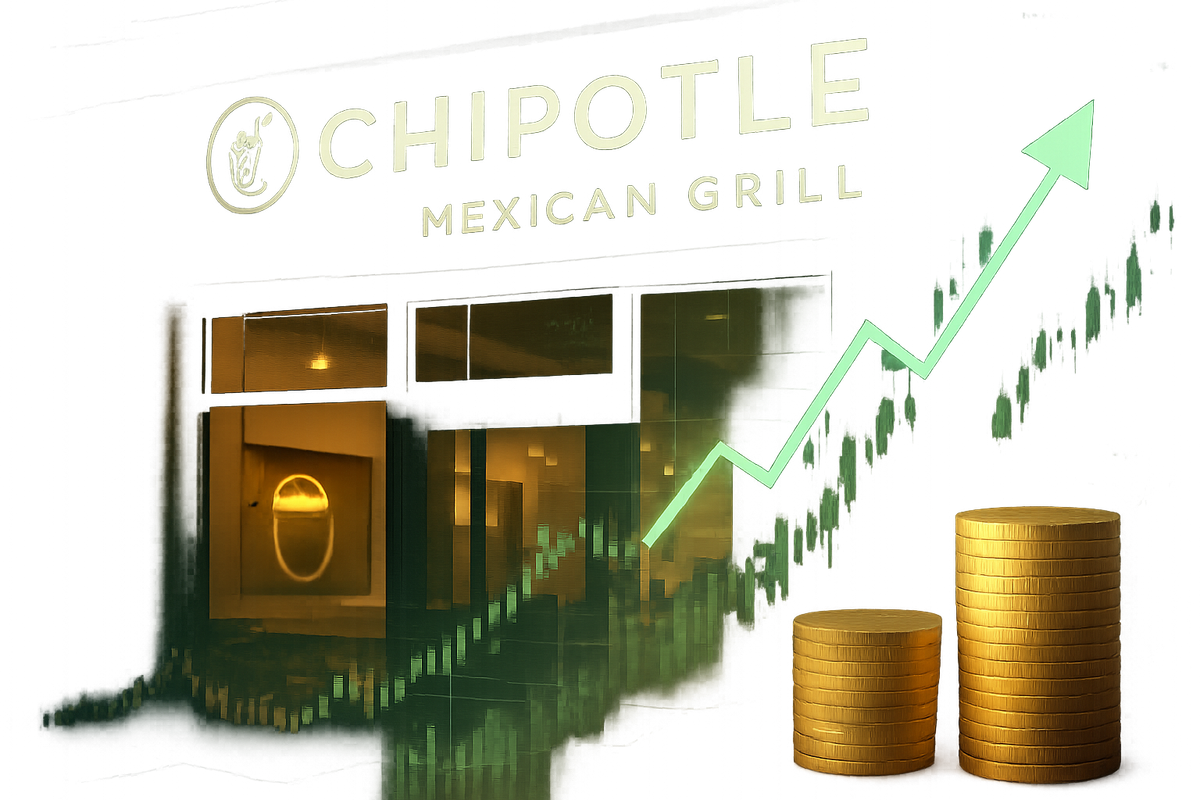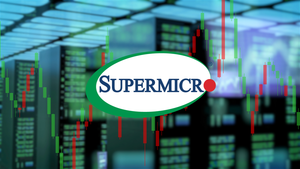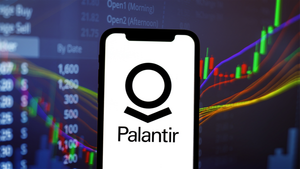
Chipotle Mexican Grill (NYSE: CMG) has been a focal point in the financial markets, with its stock demonstrating a complex interplay of strong long-term growth, recent fluctuations, and a strategic approach to shareholder returns. As of October 3, 2025, the fast-casual giant exhibits robust financial health, characterized by consistent revenue growth and impressive cash flow generation. While such financial strength often sparks discussions about potential dividend payouts, Chipotle's current strategy firmly leans towards aggressive share repurchase programs, raising questions among investors about the future direction of its capital allocation.
The company’s stock performance has seen notable shifts, particularly around its 50-for-1 stock split in June 2024, designed to enhance accessibility for a wider investor base and employees. Following the split, the stock experienced a retreat from July 2025, hitting a 52-week low of $38.30 by mid-September 2025, before recovering slightly to $40.30 by October 2, 2025. This recent pullback has been largely attributed to short-term profit-taking rather than fundamental weaknesses, underscoring the market's continued confidence in Chipotle's underlying business model and its potential for sustained growth.
Detailed Coverage of Chipotle's Market Journey
Chipotle's journey in the market has been marked by strategic growth and financial resilience. The 50-for-1 stock split on June 26, 2024, was a significant event, aimed at making the company's shares more liquid and appealing to a broader audience. This move, while not directly impacting the company's valuation, signaled management's confidence and desire to broaden ownership. Despite this positive structural change, the stock saw a decline in the third quarter of 2025, reaching a low of $38.30. This retreat, however, should be viewed in the context of substantial long-term gains, with investors seeing returns of 15% per year over the last five years as of July 28, 2025.
The company's financial results for the full year 2024 painted a picture of strong growth, with total revenue increasing by 14.6% to $11.3 billion and net income rising by 24.7% to $1.53 billion. Operating margins also improved, reaching 16.9% from 15.8% in 2023. However, recent quarterly results have shown a nuanced performance. Q1 2025 saw a 6.4% revenue increase to $2.9 billion, but comparable restaurant sales slightly decreased by 0.4%, primarily due to lower transaction volumes. Q2 2025 continued this trend, with revenue growth of 3.0% to $3.1 billion driven mainly by new restaurant openings, while comparable restaurant sales fell 4.0% due to declining transaction volumes. These fluctuations highlight the ongoing challenges of consumer spending sensitivity and competitive pressures.
Despite these short-term headwinds in comparable sales, Chipotle's financial bedrock remains exceptionally strong. The company boasts an impressive Altman Z-Score of 7.89, indicating robust financial health and a low probability of financial distress. Furthermore, its Beneish M-Score of -2.76 suggests a low risk of financial manipulation. With a net margin of 13.32% and a Return on Equity (ROE) of 42.83% as of September 29, 2025, coupled with "basically no significant long-term debt as of Q2 2025," Chipotle maintains a conservative and highly liquid capital structure. This strong financial position, combined with consistent analyst "Buy" ratings and an average price target of around $59.41, suggests a positive outlook for the company's stock, despite recent volatility.
Market Implications and Company Dynamics
Chipotle's (NYSE: CMG) strong financial health and strategic focus have significant implications for both the company itself and the broader fast-casual dining landscape. For Chipotle, its robust cash flow and minimal debt provide substantial flexibility for continued expansion, technological investments, and further share repurchases. The company generated $1.51 billion in free cash flow in 2024, a 25.26% increase from the previous year, and reported $1.19 billion in cash and equivalents as of June 30, 2025. This financial prowess underpins its ability to weather economic shifts and invest in growth initiatives, such as its ongoing restaurant expansion, with over 200 new locations planned annually.
The primary beneficiary of Chipotle's financial strength, from a shareholder return perspective, has been its aggressive share repurchase program. In 2024, the company repurchased nearly $1 billion of its stock, and as of September 15, 2025, it expanded its repurchase authorization by an additional $500 million. This strategy effectively reduces the number of outstanding shares, thereby increasing earnings per share and theoretically boosting the stock price for existing shareholders. This contrasts with a dividend payout strategy, which would provide direct cash returns to shareholders.
For competitors in the fast-casual segment, such as Cava Group (NYSE: CAVA), Sweetgreen (NYSE: SG), and even larger players like Panera Bread (privately held), Chipotle's continued success sets a high bar. Its ability to maintain strong margins despite rising costs, its innovative digital strategies, and its commitment to fresh ingredients pressure rivals to constantly adapt and innovate. Chipotle's market leadership could lead to increased competitive intensity, forcing others to invest more in their own operational efficiencies, supply chain management, and customer engagement to retain or gain market share. However, any slowdown in Chipotle's comparable sales growth, as seen in recent quarters, could also signal broader challenges for the industry, such as consumer fatigue or increased price sensitivity.
Wider Significance and Industry Trends
Chipotle's (NYSE: CMG) performance is not merely an isolated corporate success story; it reflects and influences broader trends within the restaurant industry and consumer spending habits. Its consistent revenue growth, even with some recent dips in comparable sales, highlights the enduring consumer demand for convenient, high-quality fast-casual dining options. This trend is particularly relevant as consumers increasingly prioritize transparency in food sourcing and perceived health benefits, areas where Chipotle has historically excelled.
The company's operational efficiency and ability to generate significant free cash flow are critical in an environment marked by persistent inflationary pressures. Rising food costs, particularly for key ingredients like avocados and dairy, alongside increasing labor costs due to minimum wage hikes, pose significant challenges across the restaurant sector. Chipotle's capacity to navigate these headwinds, as evidenced by its strong operating margins, demonstrates a robust business model that many competitors strive to emulate. Its pricing power, though carefully managed to avoid alienating customers, allows it to absorb some of these cost increases without severely impacting profitability.
Furthermore, Chipotle's strategic decision to prioritize share repurchases over dividends aligns with a trend seen in many high-growth companies that choose to reinvest profits back into the business or use buybacks to enhance shareholder value. This approach suggests a belief that the company's stock remains undervalued and that reinvesting in itself offers a better return than direct cash distributions. Historically, many companies transition to dividend payouts as their growth matures, signaling a shift from aggressive expansion to stable cash returns. Chipotle's current stance indicates it still sees significant avenues for growth and capital appreciation. Regulatory shifts, such as changes in labor laws or food safety regulations, could also disproportionately affect large chains like Chipotle due to their extensive operational footprint, potentially impacting future financial performance and capital allocation decisions.
What Comes Next for Chipotle
Looking ahead, Chipotle (NYSE: CMG) is poised for continued strategic expansion and operational refinement. In the short term, investors will be closely watching for improvements in comparable restaurant sales and transaction volumes, particularly after the slight declines observed in Q1 and Q2 2025. The company's ongoing efforts in digital innovation, including enhanced mobile ordering and loyalty programs, will be crucial in driving customer engagement and traffic. New restaurant openings, which remain a significant growth driver, are expected to continue at a robust pace, further expanding its market presence.
In the long term, Chipotle's strategic pivots could involve further menu innovation, exploring new restaurant formats, or even international expansion, though the latter has historically been a more cautious endeavor. The company's strong cash position and minimal debt provide ample flexibility to pursue these opportunities. A key question remains whether Chipotle will eventually shift its capital allocation strategy to include dividend payouts. While its current focus on share repurchases effectively returns value to shareholders, a sustained period of high profitability and maturing growth could prompt a reevaluation of this strategy, potentially leading to the initiation of a dividend program. This would likely be a significant signal to the market, indicating a transition to a more mature, income-generating investment profile.
Market opportunities for Chipotle include capitalizing on sustained consumer demand for convenience and quality, particularly as economic conditions stabilize. Challenges, however, persist, including managing persistent inflation in food and labor costs, navigating an increasingly competitive fast-casual landscape, and maintaining pricing power without deterring price-sensitive consumers. Potential scenarios range from continued strong growth driven by expansion and operational efficiency, maintaining its share repurchase strategy, to a future where it balances growth investments with a dividend payout, offering a dual approach to shareholder returns.
Comprehensive Wrap-Up
In summary, Chipotle Mexican Grill (NYSE: CMG) stands as a financially robust company with a compelling growth trajectory, despite recent short-term fluctuations in its stock performance and comparable sales. Its strong balance sheet, significant free cash flow generation, and aggressive share repurchase program underscore a clear commitment to enhancing shareholder value. While the prospect of dividend payouts is often associated with such financial strength, Chipotle's current strategy prioritizes growth reinvestment and buybacks, reflecting its ongoing ambition for market expansion and operational excellence.
Moving forward, the market will be keenly observing Chipotle's ability to reignite comparable restaurant sales growth and transaction volumes, which are critical indicators of its underlying brand health and consumer appeal. Its strategic investments in digital platforms and new restaurant development will be pivotal in sustaining its competitive edge. For investors, understanding Chipotle's capital allocation strategy – its preference for share repurchases over dividends – is crucial. Any future shift towards a dividend policy would represent a significant strategic pivot, signaling a potential maturation of its growth phase and a new chapter in its approach to shareholder returns.
Ultimately, Chipotle's journey exemplifies the dynamics of a leading fast-casual brand navigating a complex economic and competitive landscape. Its strong fundamentals suggest continued resilience, but its evolution will be shaped by its ability to adapt to changing consumer preferences, manage operational costs, and strategically deploy its substantial financial resources. Investors should monitor quarterly earnings reports, comparable sales trends, and any announcements regarding capital allocation strategies for insights into the company's future direction and the potential for long-term value creation.
This content is intended for informational purposes only and is not financial advice




